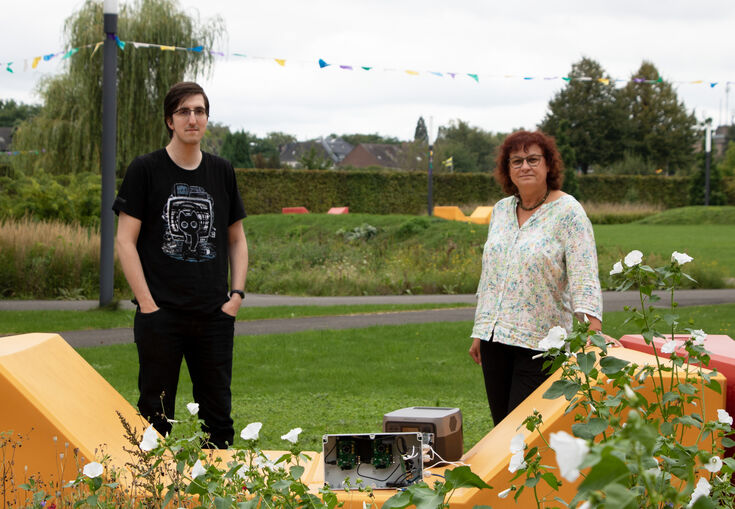Back in 2017, the Entomological Association of Krefeld drew attention to insect mortality in its study. At the time, they showed that the insect population had declined by around 75 percent over a period of 30 years. The Hochschule Niederrhein (HSNR) is actively committed to preserving insects and started work on the "BeeVision" research project at the beginning of January. It combines technical advances in the evaluation of monitoring data with artificial intelligence (AI) methods and expertise in the field of pollinators. The project is being sponsored by the Carl Zeiss Foundation with a total of 750,000 euros, with 225,000 euros going to the HSNR.
The project team is developing a system that uses AI to monitor pollinator diversity. The dynamic image sensors automatically record the flight patterns of insects in a landscape. Neural networks will then be used to classify the flight paths into six different insect groups, such as honeybees, bumblebees and butterflies. The first successful tests were carried out last year. The new method of observation has the advantage that no intervention in nature is necessary.
In addition to the HSNR, the State Institute of Apiculture at the University of Hohenheim and Karlsruhe University of Applied Sciences are also involved in the project. The HSNR is responsible for the software development and image analysis of the trajectories. The "BeeVision" project will also be integrated into teaching education in the form of project assignments by students. The first measurements will be carried out in spring at the State Office for Bee Research at the University of Hohenheim.


















